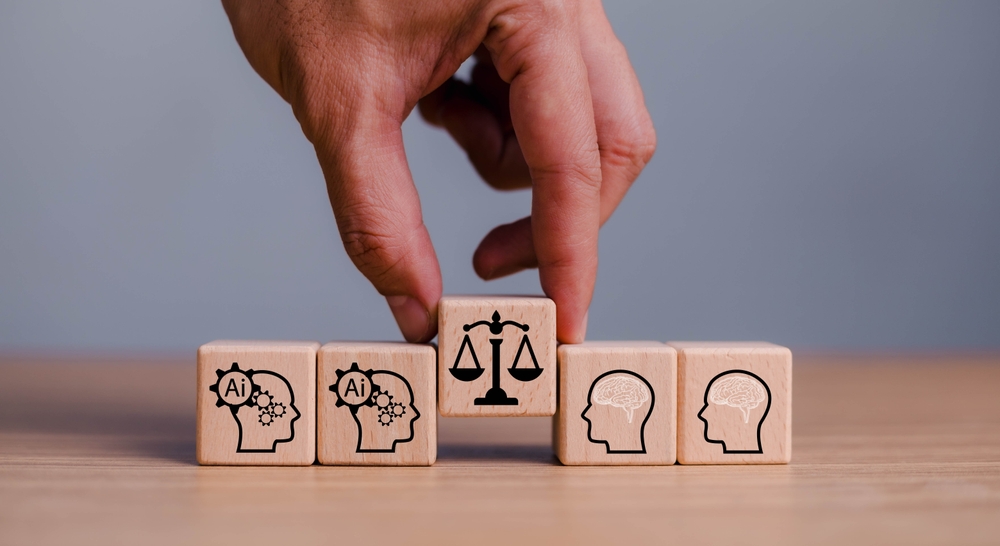Imagine: you’re scrolling through social media when your phone buzzes with a notification. It’s your virtual assistant, reminding you about an upcoming meeting and suggesting the best route to avoid traffic. This is just one example of how artificial intelligence (AI) has seamlessly woven itself into the fabric of our daily lives.
From virtual assistants to eerily accurate product recommendations, AI’s influence is undeniable. But as we embrace this powerful technology, it’s crucial to navigate the choppy waters of AI ethics with caution. As Sundar Pichai, CEO of Google, aptly stated, “AI is one of the most profound things we’re working on as humanity. It’s more profound than fire or electricity.”
Understanding the power of AI
At its core, AI encompasses a vast array of techniques, like those powering your favorite language translation app or the self-checkout lane at the grocery store. These capabilities have unlocked remarkable applications, like:
- Image recognition: Used by Facebook to automatically tag friends in photos, making your memories come alive.
- Natural Language Processing: Powering virtual assistants like Siri and Alexa, helping you manage your day with just your voice.
- Autonomous vehicles: Like Tesla’s self-driving cars, aiming to revolutionize transportation and potentially reduce accidents.
However, with great power comes great responsibility, and we must carefully consider the ethical implications of AI adoption before it’s too late.
The ethical labyrinth
As AI becomes more sophisticated and integrated into decision-making processes, concerns arise regarding potential job displacement and algorithmic bias. A valid fear, as a recent study by the World Economic Forum estimated that by 2025, technology advancements could displace 85 million jobs worldwide.
Imagine this: you apply for your dream job, but the AI hiring system unknowingly filters you out due to an unforeseen bias in its algorithm. This is a real possibility, and it highlights the importance of ensuring fairness and transparency in AI development.
Additionally, reports have surfaced about facial recognition algorithms exhibiting racial bias, raising concerns about perpetuating societal inequalities. These technologies, if not designed and deployed responsibly, could infringe on privacy rights, and enable unprecedented surveillance capabilities.
Moreover, the autonomous decision-making capabilities of AI raise profound questions about accountability. Remember the Uber self-driving car accident in 2018? As AI takes on more responsibility, establishing clear frameworks for accountability is crucial.
Charting a course for responsible AI
Addressing these ethical challenges requires a collaborative effort, like a team of explorers navigating a complex landscape. Ethicists, policymakers, technologists, and everyday people like you and me must work together to find solutions.
By fostering open discussions, we can collectively navigate the intricate web of ethical dilemmas surrounding AI. This includes,
- Examining the trade-offs between efficiency and fairness.
- Exploring mechanisms for algorithmic transparency and accountability.
- Developing frameworks to mitigate unintended consequences.
The future we choose
As we stand at the precipice of an AI-driven future, it is crucial that we prioritize ethical considerations and foster transparency, fairness, and accountability in AI development and deployment. Stakeholders across sectors must collaborate to establish rigorous standards and governance frameworks for responsible AI practices. As Satya Nadella, CEO of Microsoft, eloquently stated, “We need to ask ourselves not only what computers can do but what computers should do.”








